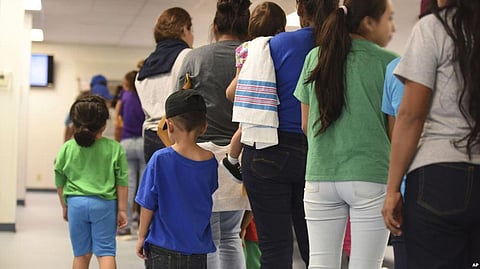While the U.S. has handled more border apprehensions than the current level, what has shifted in recent months is the demographics. More parents are traveling with young children, and with that change comes a different set of challenges, especially regarding detention facilities. CBP detained 76,103 people in February. Nearly half — 36,174 — were part of family units.
McAleenan blamed congressional inaction on immigration for the surge. However, motivators behind migrant flows are considered multifaceted. The motivators involve reasons people want to leave their home country (violence, persecution, economic insecurity, natural disaster); reasons people want to come to the U.S. (to join family, seek safety or asylum, flee abuse, earn more money); political and social factors; policies in the U.S. and Latin America; cartel activity and transportation; or good weather.
McAleenan said that additional CBP staff — about 750 people he called "humanitarian personnel" — would be temporarily assigned to help process detainees on the southern border. The agency plans to move those employees from border checkpoints to handle arrivals that happen away from the formal entry points. The diversion of personnel could slow down access through checkpoints as the Easter holiday approaches — a busy week for residents on both sides of the border to cross for family visits, a long weekend, or shopping.
"We're doing everything we can to simply avoid a tragedy," the commissioner told reporters.


